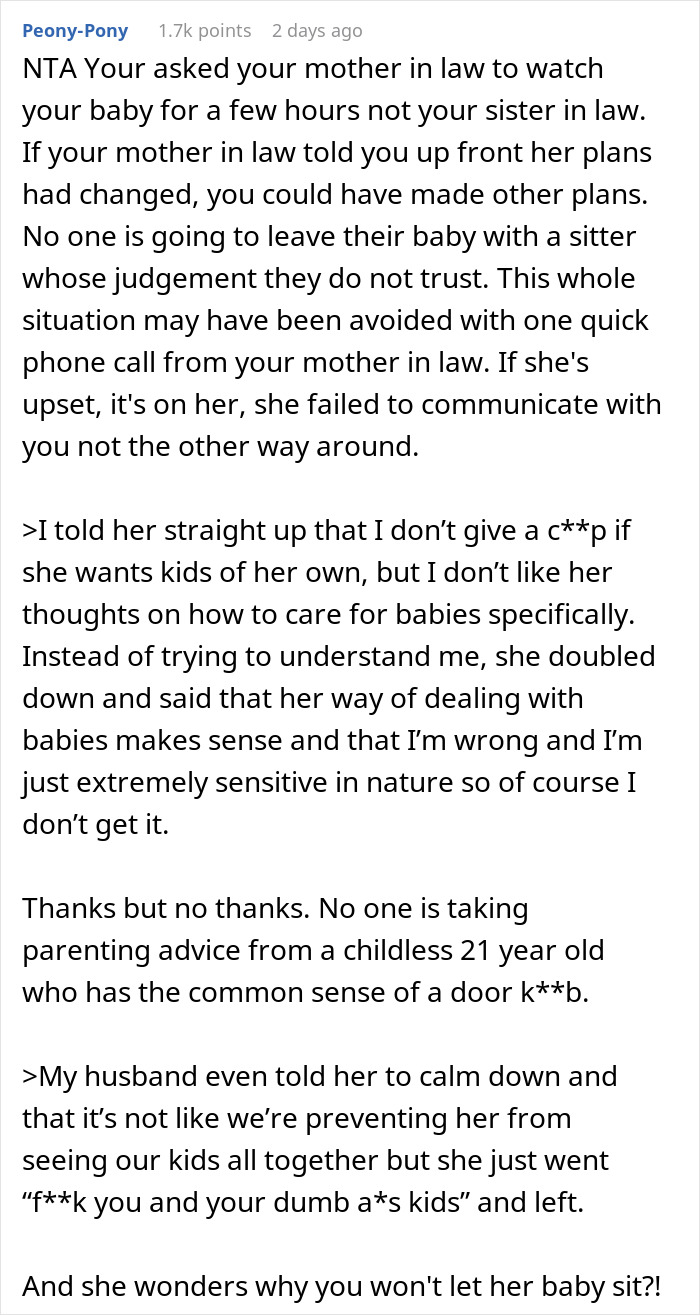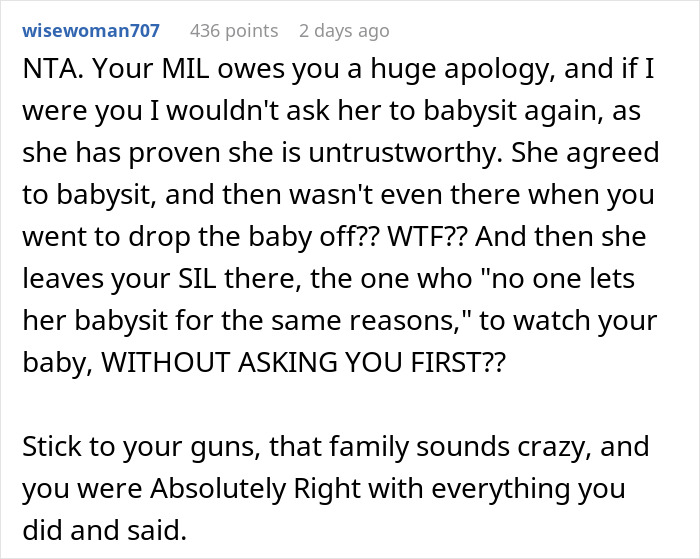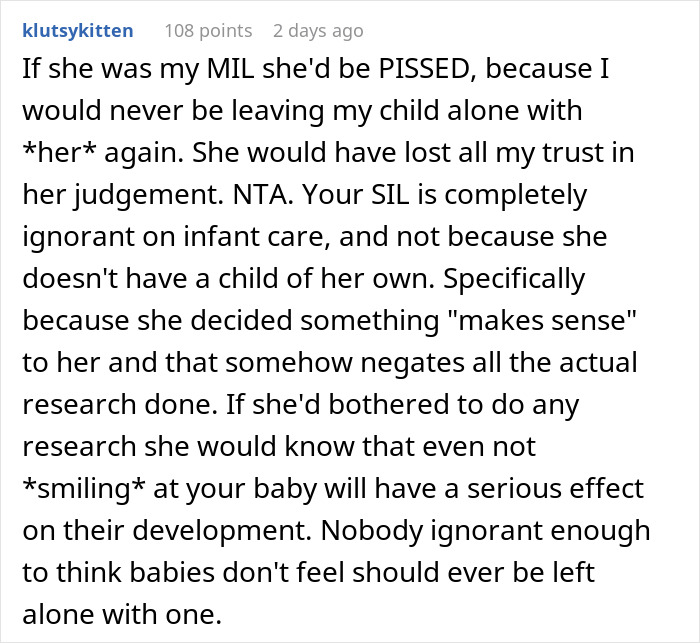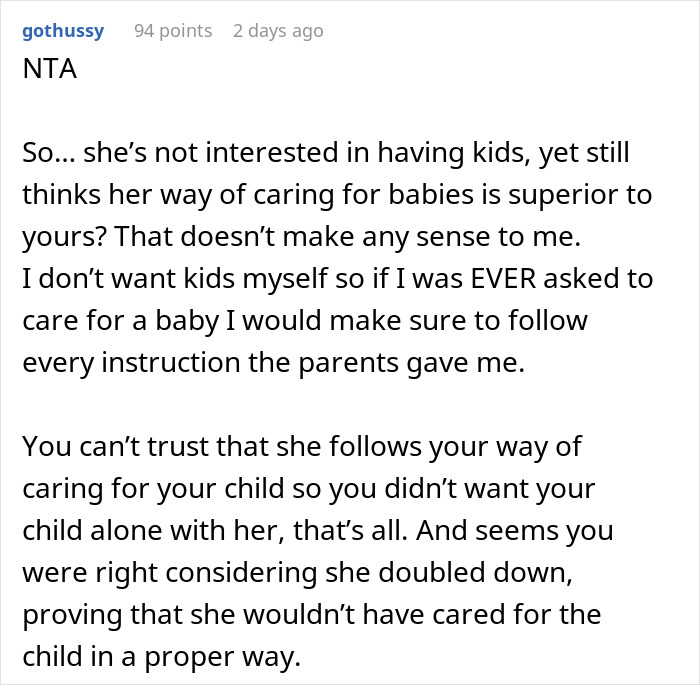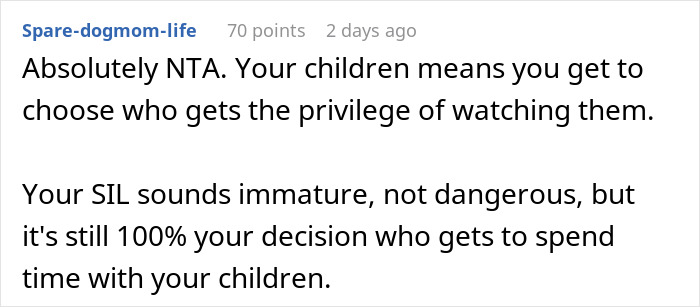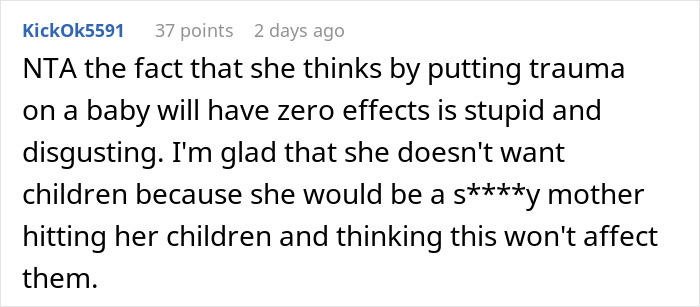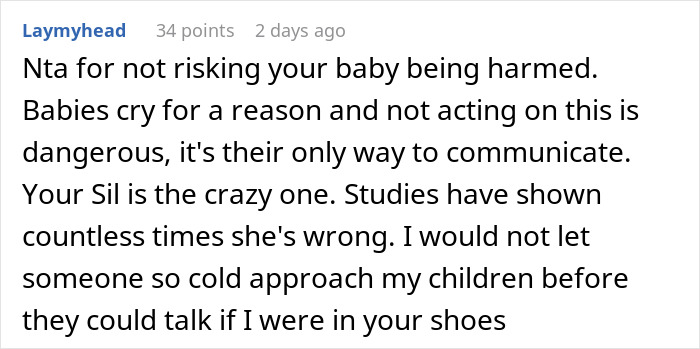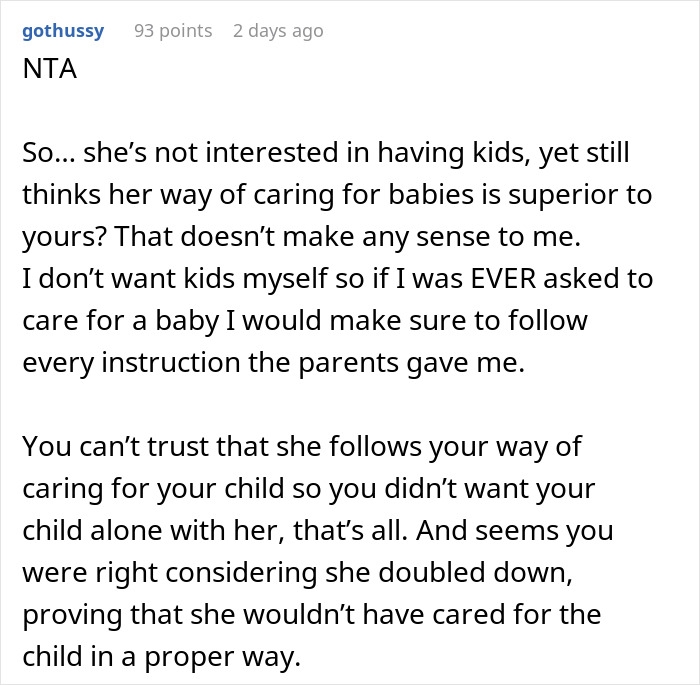Finding a babysitter can be hard. In fact, one survey found that 69% of parents say that good babysitters are hard to find. This might be even more true for finding a babysitter that is good with babies; certainly, not everyone can look after a 4-month-old child properly.
This mother refused to leave her baby with her SIL. Mostly because the youngster said she didn’t believe babies could feel anything at that stage. She did, interestingly, get offended when the parents refused her the babysitting job. Not sure whether she was too harsh, the mother decided to check in with the Internet.
These parents needed a babysitter for the evening, but they didn’t want it to be the dad’s sister
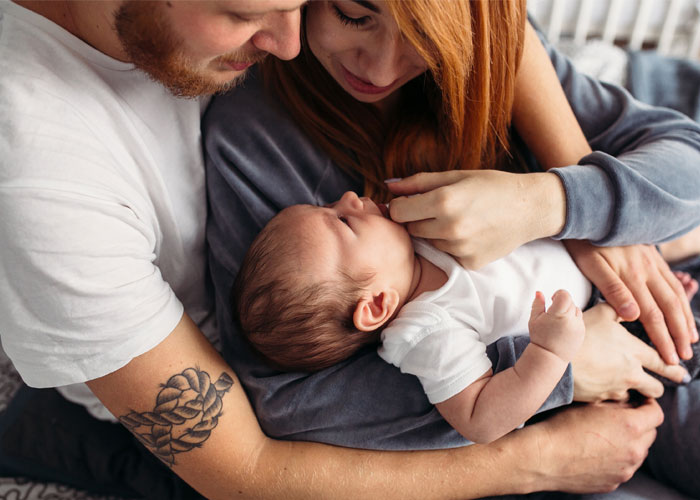
Image credit: Simbiothy/Envato (not the actual photo)
Apparently, they refused because the SIL had an interesting philosophy when it came to looking after babies
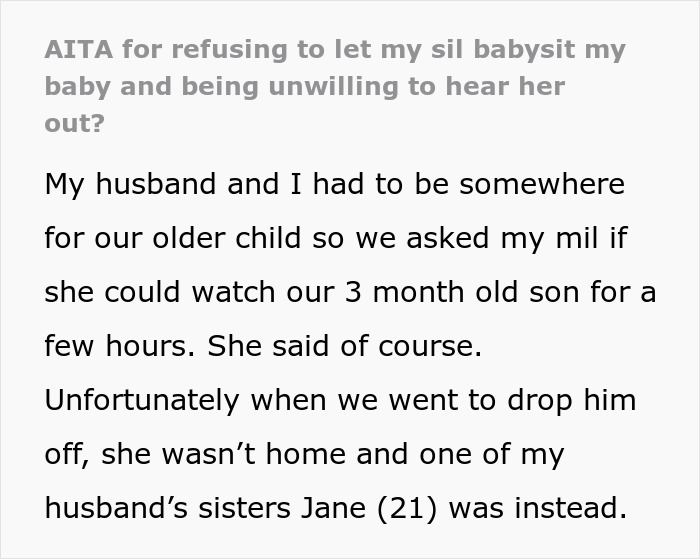
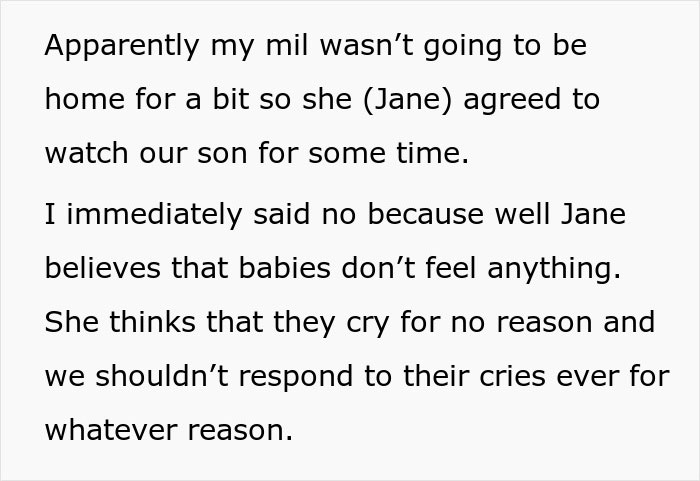
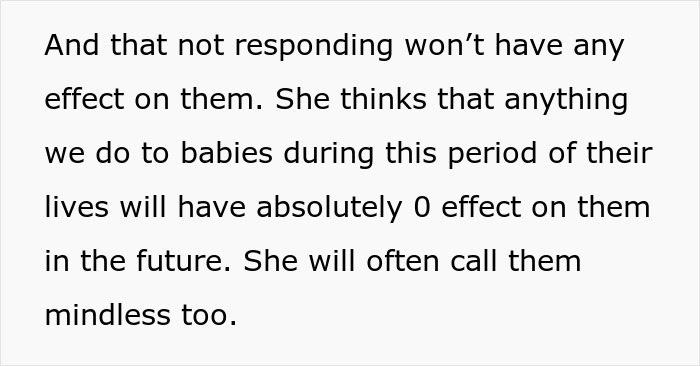

Image credits: Satura_/Envato (not the actual photo)
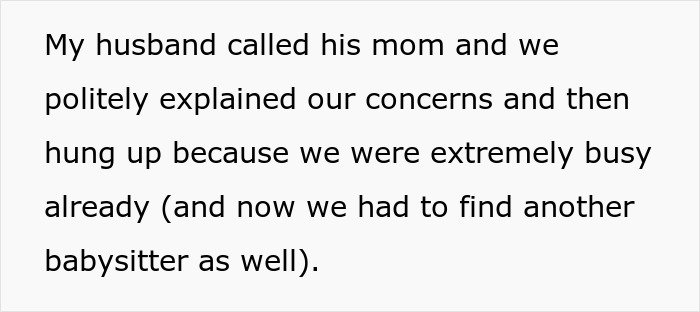
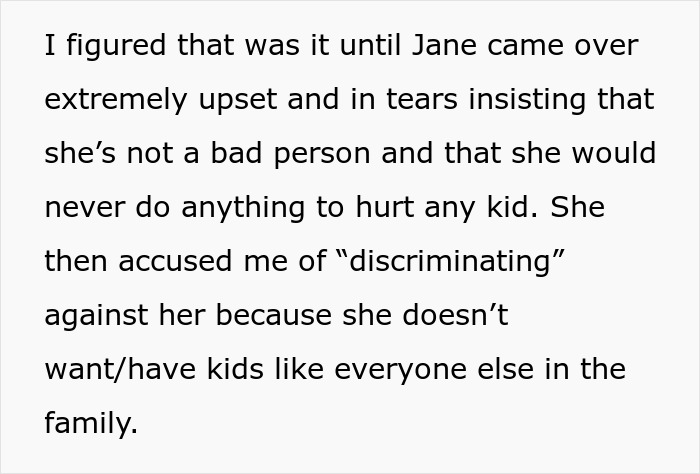
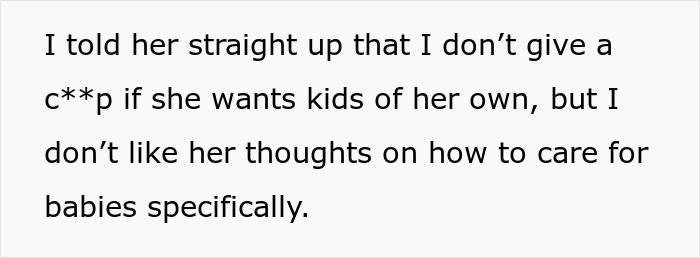
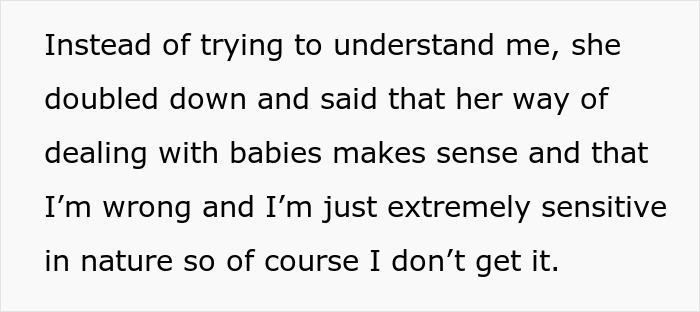

Image credits: LightFieldStudios/Envato (not the actual photo)
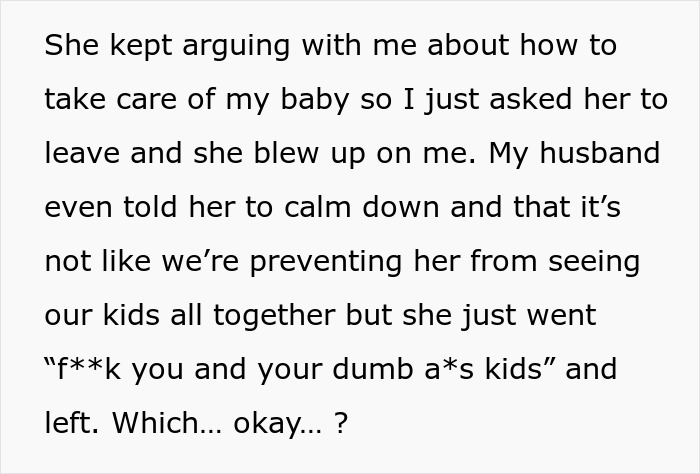
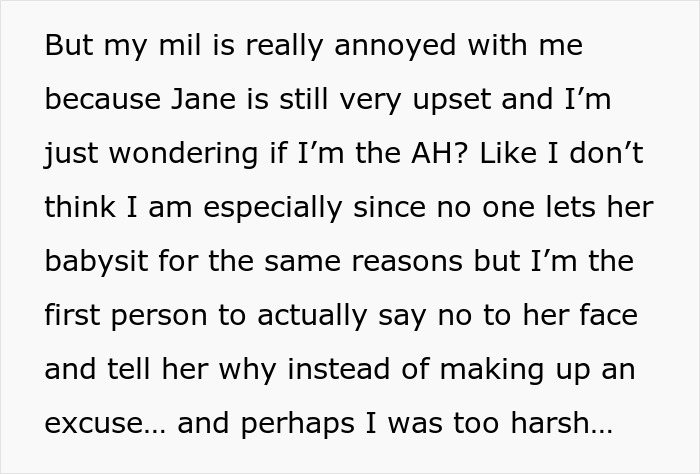
Image credits: RaisinNo2082
Generally, there’s a reason why babies cry: they can be hungry, tired, or even bored
For most parents, attending to their crying baby is a given. Granted, some tend to fuss around less and not react to every blubber. But others, like the mother in this story, can be more sensitive and attuned to their child’s cries.
Every baby is also different. Some cry more, some cry less. Experts say that for the first six weeks, it’s normal for a baby to cry for two or three hours a day. Most babies reach their peak crying stage at about six weeks. The little ones do most of their crying in the first three months of their life.
In general, there is usually a good reason why babies cry. At this developmental stage, it’s their only way to show they’re in distress. According to the NHS, the most common reasons a baby is crying are tiredness, hunger, a wet diaper, overstimulation, wanting a cuddle, being too hot or cold, and boredom. Sometimes, babies can even cry when they’re passing wind.
However, sometimes, babies can cry for unknown reasons. Doctors say that the causes of colic – the prolonged crying and fussiness of a healthy baby – are still unexplained. Some theorize it’s because of digestive problems: an underdeveloped digestive tract, allergies or intolerances, an imbalance of healthy bacteria, overfeeding, underfeeding, or infrequent burping. Other possible causes are an early form of childhood migraine or family stress and anxiety.
The good news for parents is that babies outgrow colic. It usually starts when the newborn is 2-5 weeks old and goes on until they’re about 3-4 months old. So, technically, the sister-in-law isn’t correct when she says that “babies cry for no reason.” If she meant colic, doctors and scientists haven’t yet found a definitive explanation for it. But most do agree that it’s definitely a thing.
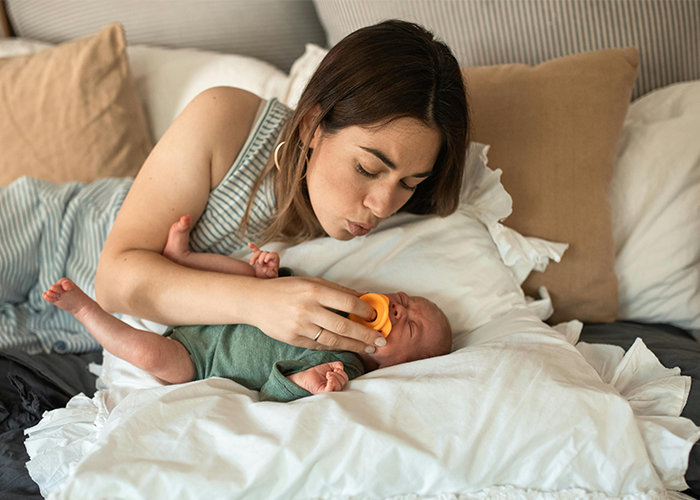
Image credits: RDNE Stock project/Pexels (not the actual photo)
The ‘cry it out’ technique is a hotly debated topic among parents
To let a baby cry it out or to soothe them is the age-old question. Some parents believe that letting an infant cry it out can be an effective self-soothing technique. Then there are others who practice controlled crying as a sleep training technique: they let the baby self-soothe to sleep, but they step in if the crying continues for more than a few minutes at a time. And other parents react to their baby’s every cry, picking them up to soothe them every time.
An apparent breakthrough came in 2020 around the topic when researchers claimed to have found evidence that leaving infants to cry has no impact on their behavioral development. The team claimed there was no negative effect on the bond between the mother and the child if the caregiver left the baby to ‘cry it out.’
However, experts warn to view that study cautiously. Amy Brown, a professor of child public health at Swansea University, told The Guardian that the research doesn’t exactly prove that controlled crying is a good thing. Neither does it “talk about how distressing a lot of mothers find it when their baby cries.”
The authors do, however, implore parents to trust their own instincts when it comes to their babies crying. The co-author of the study, Dieter Wolke, says that the researchers don’t suggest parents not react to their child crying.
“[Crying is] the only way of communication of a baby, for example for feeding, safety and things. [Parents] should react to the crying, and automatically we do this.” He suggests that letting a baby cry for a few minutes can help them self-soothe.
In fact, experts say that the middle ground in this debate is a parent’s best bet. Ignoring a baby’s cries for long periods of time can be distressing for both the caregiver and the child. But parents can leave their baby alone in a safe space for 10 to 15 minutes. “Many babies need to cry before they can fall asleep,” according to the Mayo Clinic.
The mother gave more context to the story in the comments

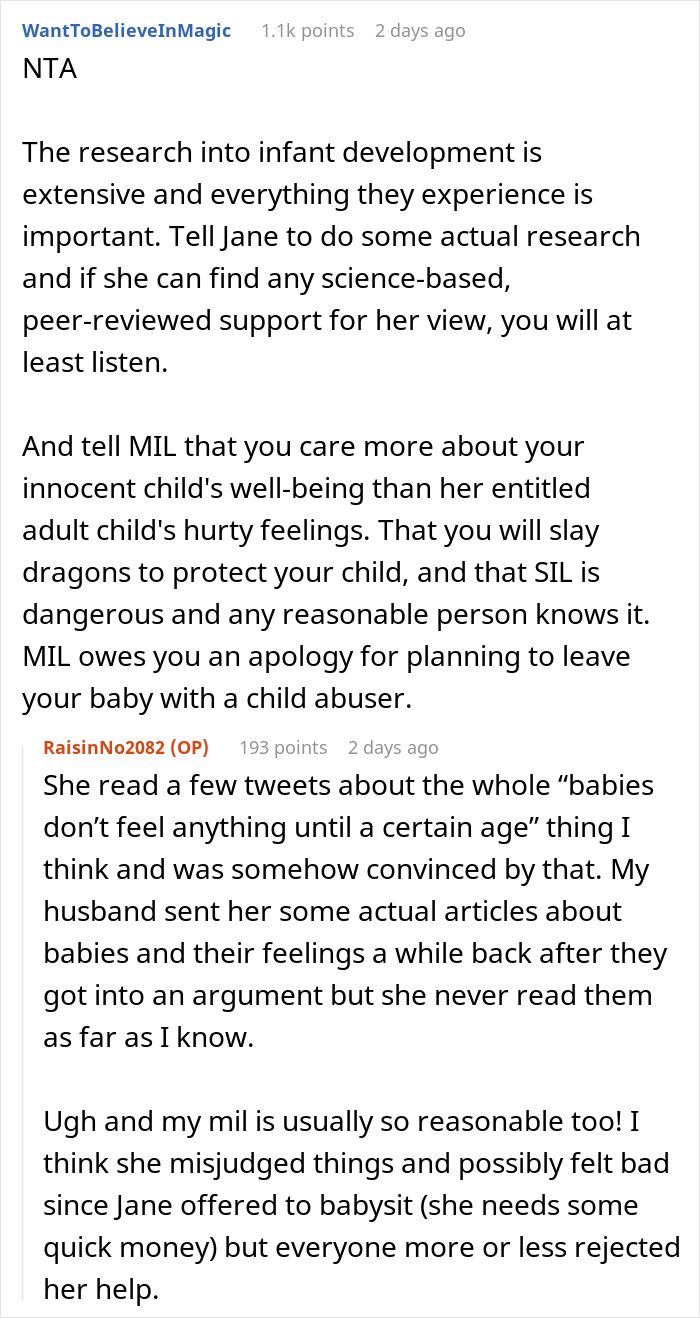
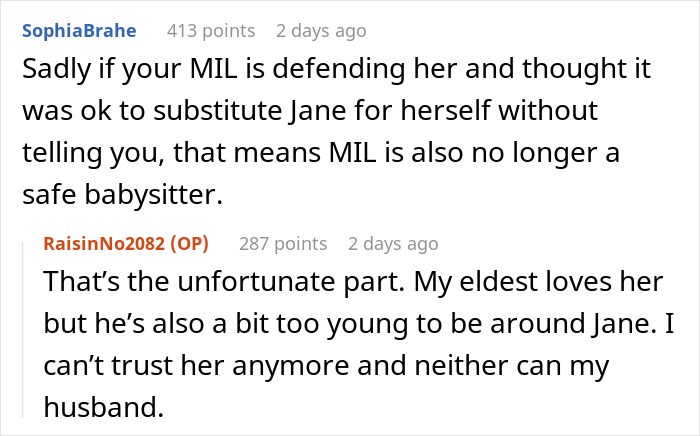
People told the mother she was completely justified in her decision
